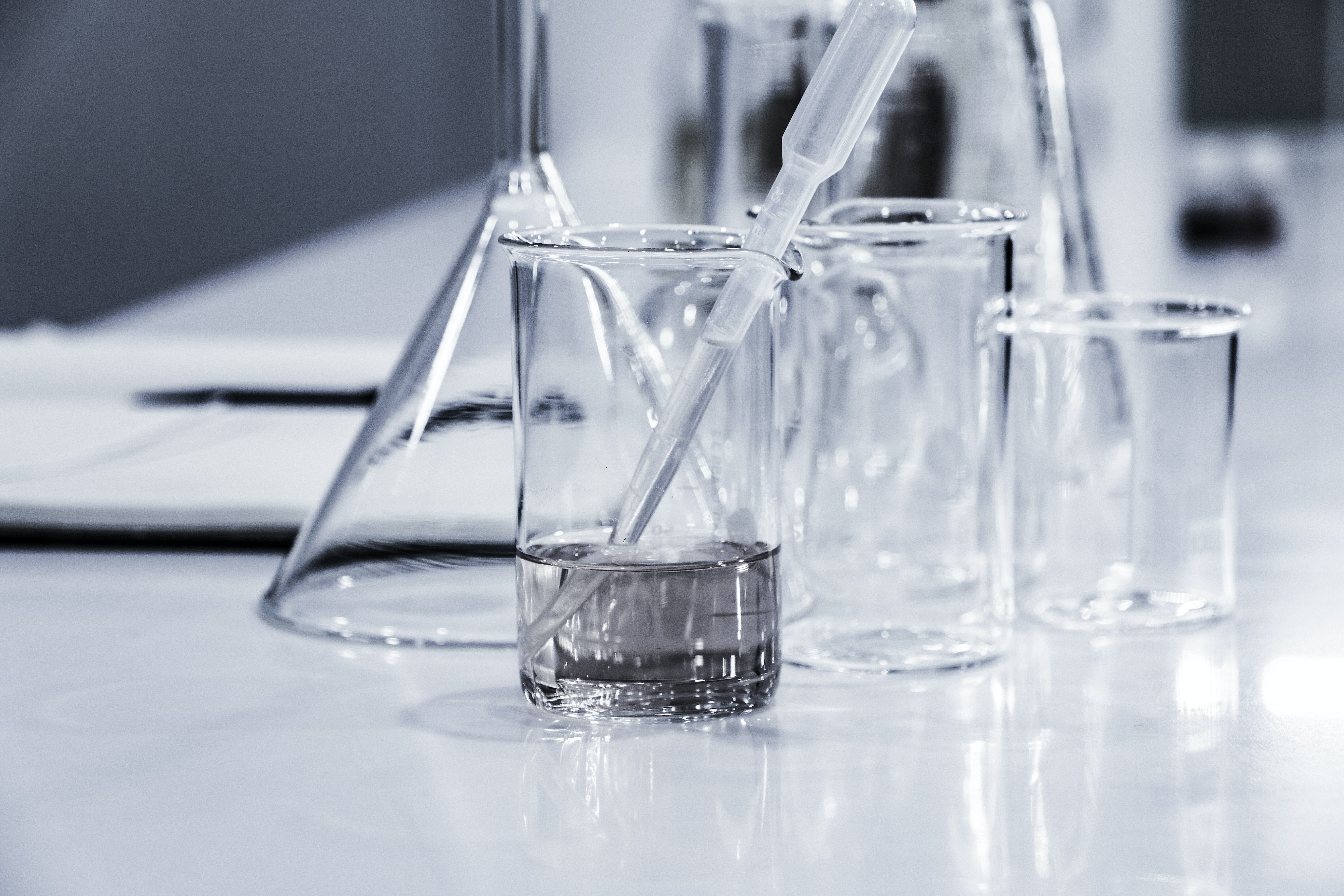The senior years of high school are among the most challenging in your education, and many students often wonder if they are taking the right courses.
We want to take courses that support our interests, whether they be in the arts or sciences. It’s hard to be successful in learning something you don’t like or care about, so understanding our passions is important. At the same time, we want to take courses that support our future goals and aspirations, whether it is becoming an engineer, a contractor, a teacher, a doctor or an actor. And of course, we want to choose courses that we will get good grades in, so we can have the right GPA to get into our dream college or university program.
Chemistry is one course many students take in secondary school when they love the sciences. It is also essential learning for anyone who wants to pursue a career in scientific research, nursing, medicine, pharmacy, and dentistry - to name a handful of chemistry-related fields. Chemistry offers so much in terms of engagement and career pathways that it is one of the most popular courses students take or must upgrade.
So what is the study of chemistry? And is learning grade 12 chemistry like? Let’s explore this exciting subject.

What is Chemistry?
Chemistry deals with the properties, composition, and structure of elements and compounds, how they transform, and the energy that is released or absorbed during chemical processes. All matter is made up of one or more atoms that have been identified as elements. Atoms are considered the basic building blocks of substances: it is the smallest unit of a particle that exists.
Whether we realize it or not, chemistry is all around us in what we see, touch, and taste. Our bodies are constantly producing chemical reactions, and we use chemistry everyday when we clean, cook, take medicine, or create new things. Chemistry is at work when we mix laundry detergent with water to cleanse our clothes, when we use water to dilute frozen juice, or receive a vaccine to ward off life-threatening illness.
With so much chemistry all around us, it is no wonder that so many professions require knowledge of the subject.
Choosing your high school courses can be tough with so many options to choose from. Learn how to make course selections that lead to the postsecondary pathways you want most.

Is Chemistry Challenging?
Like any subject in school, chemistry will challenge you mentally. Luckily, our chemistry learning starts from a young age, as we are constantly playing with different substances from the time we are toddlers.
As a kid, you may recall making homemade play dough, or even extruding commercial play dough through different tools to make new shapes and textures. You likely even have baked cookies or cooked a meal with a family member, witnessing the different chemical reactions ingredients have when mixed with one another, heated up, or cooled down.
Science classes in elementary school will also delve into chemistry through a study of fluids and solids. You have likely explored the concepts of mechanical mixtures and solutions, or familiarized yourself with a school lab. Nearly every elementary school will have a science classroom with different lab stations where chemistry is explored: beakers, test tubes, bunsen burners, gas connections and gadgets were among the many chemistry instruments you might see!

Chemistry Topics You Will Study in Grade 12
By the time we get to grade 11 and 12, we are stepping away from learning general, foundational science skills and finally getting a chance to deeply explore different branches of science. Grade 11 and 12 chemistry classes will typically prepare students for more advanced learning in college or university, focusing on the essentials that will help you to navigate the terminology and content you might see in further chemistry classes or applied science areas.
It’s important to note that some senior level chemistry classes are geared toward college preparation, while others are geared toward university preparation. University track chemistry courses will study chemistry more theoretically in order to prepare you for the rigours of university study; college prep chemistry typically takes a more applied, hands-on focus for programs that lead directly to the workplace.
To choose the right chemistry course, we advise that you identify your long term goals and discuss them with a guidance counsellor or a mentor. They can not only advise of which course to take, but when to take it to ensure that you can focus fully on it or are not overwhelmed by it in the context of your larger course load.
Are you thinking about taking grade 12 chemistry? Wondering whether you should take the online or in-person option? Get all of your chemistry questions answered here.

Topics you will study in grade 11 and 12 chemistry include:
- Matter, chemical trends, and chemical bonding
- Chemical Reactions
- Quantities in Chemical Reactions
- Solutions and Solubility
- Gases and Atmospheric Chemistry
- Scientific Investigation Skills and Career Exploration
- What Are the Best Chemistry Research Topics for Grade 12?
In the upper grades of high school, it is quite common to be assigned the task of independent study and research. In many cases, you will be asked to choose an area of chemistry you are interested in and complete research and experiments so you can develop a report or presentation on the subject.
Some schools may have science fairs, where you can present your research and findings creatively. You might create a simple board presentation, build a website, create some slides, or a mix of different things. Whatever format you choose, make sure you take the time to photograph the progress and work you do - nothing is more powerful than original documentation and images!
Depending on your teacher’s expectations, you will want to choose a topic you are interested in or relates to your future goals. If you are looking to work in medicine, for example, you may want to investigate the properties of different over the counter medications and compare them. You may want to look into a specific branch or area of chemistry and learn more about them. If business is an area of interest to you, why not research the chemical composition of a specific product and their competitors? Maybe you are fascinated by food: why not experiment with different ingredients or agents to see their impact on a dish? Develop a new flavour, or create a new food-related invention?
Topics in organic and analytical chemistry are among the most popular for students to research. Let’s take a closer look.

What is the Study of Organic Chemistry?
There are different types of chemistry you can study, and each type of chemistry involves the study of a specific group of substances. Organic chemistry deals with carbon-containing compounds; what their structure and properties are, how they react, and how they are prepared. Most organic compounds are produced by living organisms and contain carbon and oxygen, but may also include other elements like nitrogen, oxygen, phosphorus, or silicon.
Organic chemistry has often been likened to the study of the building blocks of nature, though it may also involve man-made materials as well. Organic chemists are highly creative and get to explore different molecules and structures. They may be involved in product development, enhancing new materials for different purposes.
You might be surprised to learn how many topics you will cover in grade 12 or AP Chemistry courses - make sure you show up for a chemistry class prepared!
What is Analytical Chemistry?
Analytical chemistry is all about obtaining, processing, and communicating information about the composition and structure of matter, of determining what matter is and how much of it is in the world. If that sounds challenging and complex, it is because it is: analytical chemists make major contributions to science and industry.
Analytical chemists use their deep knowledge of chemistry, technology and statistics to solve scientific problems. They perform research, develop new products, design instruments for analysis, and may work in a wide range of fields. If you have an analytical mind and are fascinated by collecting and presenting information, a focus on analytical chemistry could be right for you.
Chemistry majors and students have some of the most exciting career options waiting for them after postsecondary learning. Read more to learn what your options will be after university.
Should I get an Organic Chemistry Tutor?
Chemistry can feel daunting for a lot of students, and if you need a chemistry credit or a good grade in the subject to get into your dream college or university program, hiring a tutor may be the right call for you.
A chemistry tutor will help you navigate challenging concepts, support you in learning new science vocabulary, and supplement the learning you are doing in school. Tutors can help you prepare for your exams, give feedback on a research topic or paper, and give you valuable tips and advice for scoring high on tests and assessments.
Finding the right chemistry tutor is easy thanks to Superprof. Superprof is a site that brings together science and chemistry tutors and students of all ages. If you are in grade 11 or 12, you may find it helpful to find a tutor who is in university or has already completed it, as they will be more than qualified to help you in your learning. Simply type “chemistry tutor” in the search tool on the Superprof site, and you will find dozens of amazing tutors near you to choose from.
Each Superprof tutor will have a profile posted that shares their background and rates, making the tutor hiring process efficient. Of course, make sure that you do your search and investigation with a family member who can help you contact prospective tutors and ask the right questions to see if they are a good fit.
The Superprof site even has an internal messaging system, making it easy to contact tutors to check their availability. Find your chemistry tutor on Supeprof!
Summarize with AI:















